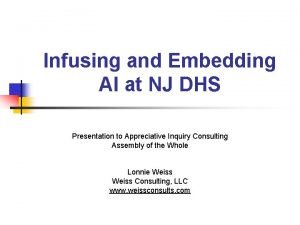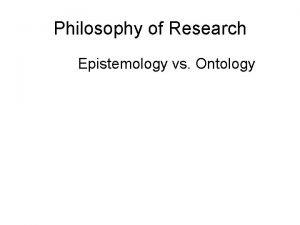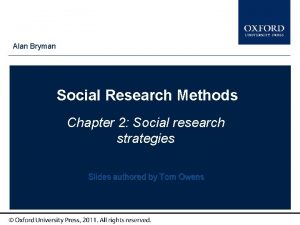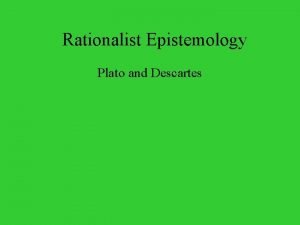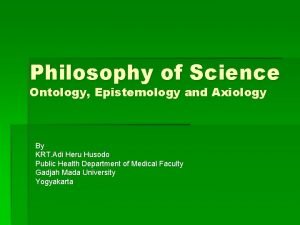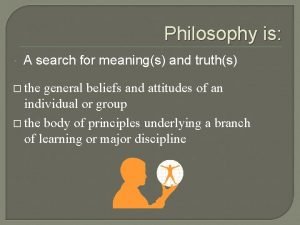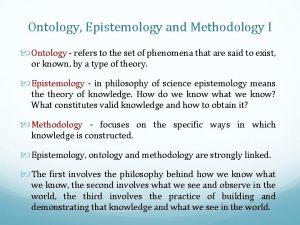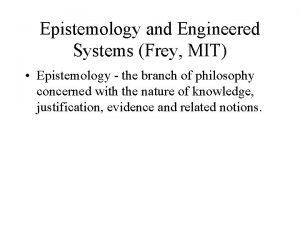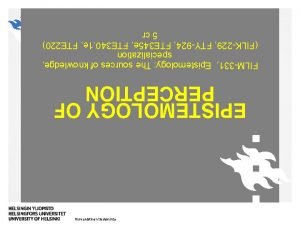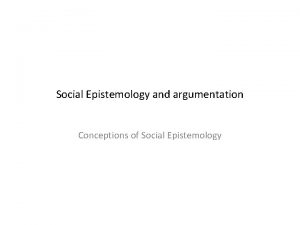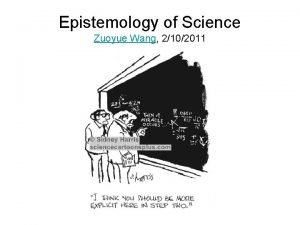Infusing NonWestern Epistemology into Action Research A way








- Slides: 8

Infusing Non-Western Epistemology into Action Research: A way of embracing complexity of mind and situation Noriyuki Inoue, Ph. D. University of San Diego

Practice and Culture • Complexity of modern society and culture – Practice improvement in complexity • Practice is embedded in the increasingly complex culture and values – Explicit and implicit cultural assumptions often define the practice • The cultural assumptions can favor the practice, but can also limit the practice – What should we do to go beyond the “gridlocks”?

Action Research and Culture • Action research as cultural activity – Cultural assumptions can define the research activity – Action researchers could be captured in the cultural assumption – Explorations of new cultural assumptions and wisdom can empower action researchers • Examples – – Practitioner Community Social justice School reform

Non-Western Epistemology • East Asian Epistemology – Different from linear, deductive and confrontational way of knowing – Assumption of complexity and dynamic understanding of reality – Self as a part of the social, cultural, and physical context – Reflection and compassion

Practice-linked Cultural Concepts from Japanese culture • 思い (omoi) – Integrated form in thinking, feeling and passion that serve as driving force of an individual or a group • 場 (Ba) – Communicative space for deepening understanding and building consensus characterized by bounded instability • 反省 (Hansei) – Reflection on one’s moral obligation and duty • 絆 (Kizuna) – Enduring bond built among colleagues, friends, and family • 匠 (Takumi) – Sophisticated skill built on advanced wisdom and experiences

Cultural terms that Japanese Educators use • 発問 (Hatsumon) – Initial, rich open-ended questions • 机間巡視 (Kikan jyunshi) – Individual problem solving as teachers walk between desks • 練り上げ (Neriage) – Consensus building for deepening understanding • まとめ (Matome) – Summarizing and applying the learning

For Development of AR • Critically examining one’s cultural assumptions and values with researchers around the world • Exploration of non-Western values and perspectives • Epistemological diversity and flexibility for empowering the local practice

Thank you! inoue@sandiego. edu
